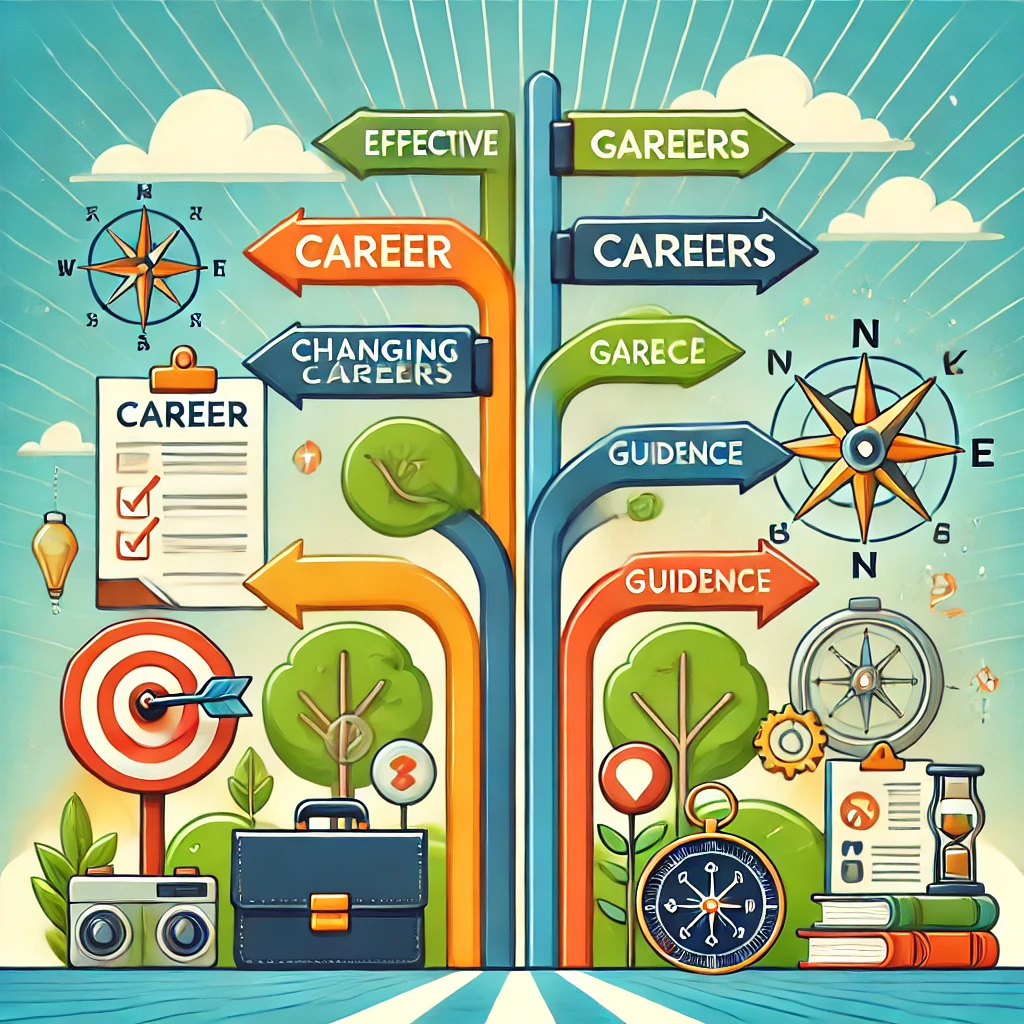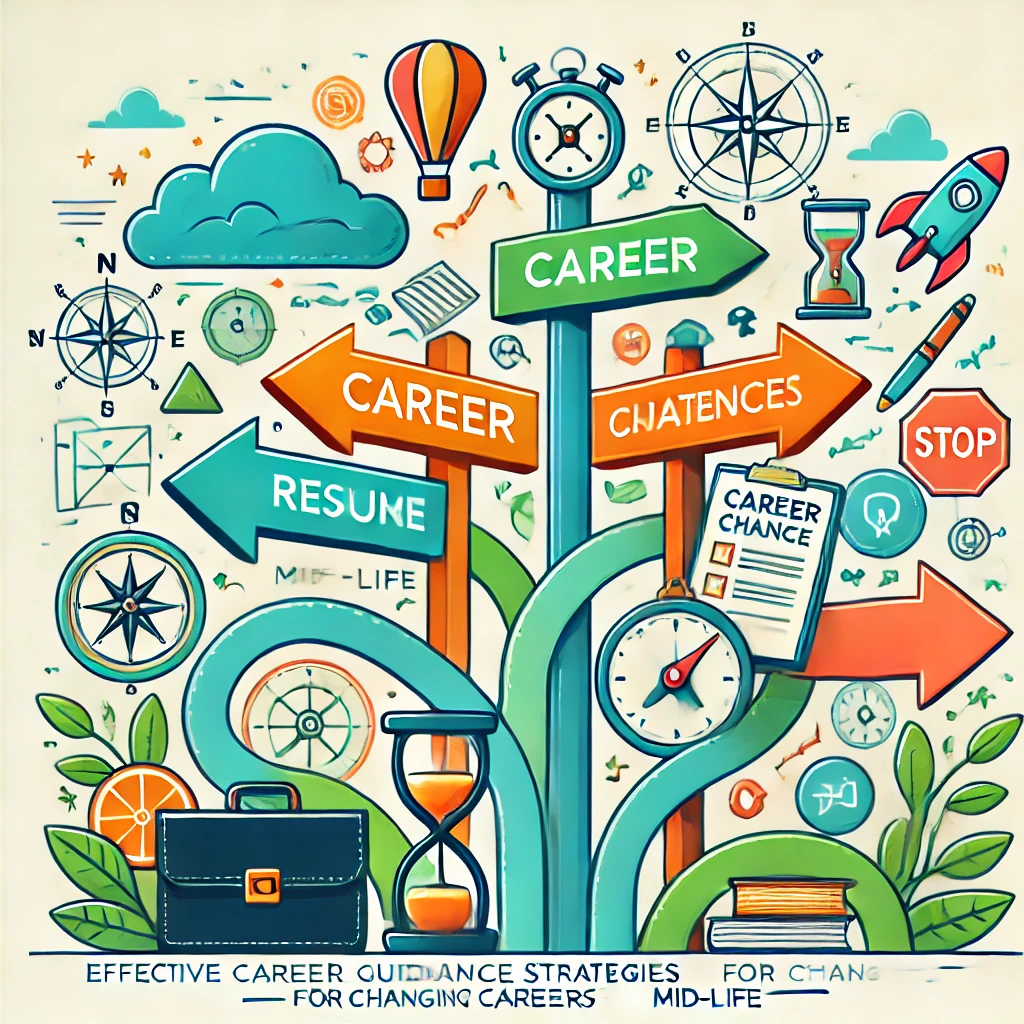Effective Career Guidance Strategies for Changing Careers Mid-Life
Changing careers mid-life can feel like steering a massive ship through a narrow channel. It’s daunting, exhilarating, and requires careful navigation. But don’t worry! If you’re feeling stuck in a rut and contemplating a new professional direction, you’re not alone. Many people face this crossroads, and with the right strategies, you can make a successful transition. Let’s dive into some effective career guidance strategies to help you change careers mid-life.
Understanding the Mid-Life Career Shift
Changing careers mid-life often comes with a unique set of challenges and opportunities. You might be grappling with doubts about starting over, but remember, it’s never too late to pursue your passion or enhance your professional satisfaction. The key is to approach this transition with a clear, actionable plan.
1. Self-Assessment: Know Your Strengths and Interests
Before you dive into a new career, take a step back and evaluate your strengths, skills, and interests. What are you passionate about? What skills have you honed over the years? Self-assessment tools like personality tests and career assessments can be incredibly useful here. They help you understand your preferences and how they align with potential new career paths.
2. Research and Explore New Career Options
Once you have a clearer picture of your strengths and interests, start researching potential careers. Look into industries and roles that align with your passions and skills. Attend industry meetups, webinars, or networking events to gain insights and connect with professionals in those fields. Exploring different options will give you a better idea of what might be a good fit.
3. Upskill and Reskill: Embrace Lifelong Learning
In today’s fast-paced world, continuous learning is crucial. Consider taking courses, attending workshops, or earning certifications related to your new career field. Upskilling not only makes you more competitive but also boosts your confidence. Plus, it’s a great way to demonstrate to potential employers that you’re committed to your new career path.
4. Create a Transition Plan
A well-thought-out transition plan is essential for a smooth career change. Outline your goals, the steps needed to achieve them, and a timeline for each step. Break down the process into manageable chunks, such as updating your resume, networking, and applying for jobs. A clear plan will help you stay organized and focused throughout the transition.
5. Leverage Your Existing Network
Don’t underestimate the power of your current network. Reach out to colleagues, friends, and professional connections who might be able to offer advice, referrals, or even job opportunities in your new field. Networking can open doors and provide valuable insights into your target industry.
6. Craft a Compelling Resume and Cover Letter
Your resume and cover letter are your first impression on potential employers. Tailor them to highlight transferable skills and relevant experiences. Emphasize your accomplishments and how they relate to the new career you’re pursuing. A well-crafted resume and cover letter can make a significant difference in landing interviews.
7. Prepare for Interviews

When you land interviews, be prepared to explain your career change clearly and confidently. Practice articulating your reasons for the transition and how your previous experience has prepared you for this new role. Highlight your adaptability, resilience, and eagerness to bring your unique perspective to the new field.
8. Consider Part-Time or Freelance Work
If possible, start by exploring part-time or freelance opportunities in your desired field. This allows you to gain experience, build your portfolio, and make connections without fully committing right away. It’s a great way to test the waters and ensure the new career is a good fit.
9. Seek Professional Career Coaching
If you’re feeling overwhelmed, consider working with a career coach. A professional can provide personalized guidance, help you refine your goals, and offer strategies tailored to your specific situation. Career coaching can be a valuable investment in your future success.
10. Manage Finances and Expectations
Changing careers can come with financial implications, especially if you’re starting from scratch in a new field. Plan your finances carefully and set realistic expectations. Be prepared for a potential initial decrease in income and plan accordingly. Budgeting and financial planning will help you manage this transition more smoothly.
11. Build a Personal Brand
In your new career, building a strong personal brand can set you apart from the competition. Create a professional online presence through platforms like LinkedIn. Share your journey, insights, and achievements to showcase your expertise and passion for the new field.
12. Stay Positive and Persistent
A career change can be challenging, and setbacks are a natural part of the process. Stay positive and persistent, and remind yourself of your long-term goals. Celebrate small victories along the way and keep your eyes on the prize.
13. Balance Work and Life
As you navigate this transition, remember to maintain a healthy work-life balance. Juggling a career change with personal responsibilities can be demanding. Prioritize self-care and make time for activities that bring you joy and relaxation.
14. Reflect and Adjust
After making the transition, take time to reflect on your progress and adjust your strategies as needed. Are you satisfied with your new career? Are there areas for improvement? Regular reflection helps you stay on track and make necessary adjustments for ongoing success.
15. Embrace the Journey
Changing careers mid-life is not just about reaching a destination; it’s about embracing the journey. Enjoy the process of discovery and growth. Each step you take brings you closer to a fulfilling and rewarding career.
Conclusion
Changing careers mid-life is a courageous and transformative journey. With the right strategies and a positive mindset, you can navigate this transition successfully. Remember to assess your strengths, research new opportunities, upskill, and build a solid transition plan. Leverage your network, seek professional guidance, and manage your finances wisely. Stay persistent and embrace the journey, and you’ll find yourself on the path to a fulfilling new career.
FAQs
1. How can I identify my transferable skills for a career change?
Start by listing your skills and experiences from your current career. Look for common themes and strengths that can be applied to your new field. Online career assessment tools and talking to a career coach can also help you identify these transferable skills.
2. Is it necessary to go back to school for a career change?
Not always. Many careers value relevant experience and skills over formal education. However, depending on your new field, some additional training or certification might be beneficial. Research the requirements of your desired career to determine if further education is needed.
3. How long does it typically take to transition to a new career?
The timeline for a career change can vary widely depending on factors like the complexity of the new field, your current skills, and the job market. It could take anywhere from a few months to a year or more. A clear plan and consistent effort will help speed up the process.
4. How can I stay motivated during my career transition?
Set small, achievable goals and celebrate your progress along the way. Keep your long-term objectives in mind and remind yourself why you’re making this change. Surround yourself with supportive people and maintain a positive outlook.
5. What should I do if I face setbacks during my career change?
Setbacks are a natural part of the process. Use them as learning opportunities and adjust your strategies as needed. Stay persistent, keep a positive mindset, and seek support from mentors or career coaches to help you navigate challenges.







